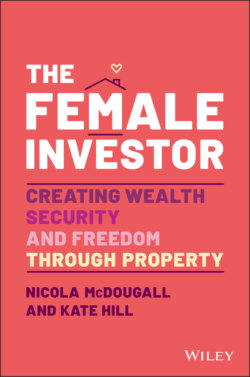Читать книгу The Female Investor - Kate Hill - Страница 11
WHY DOES IT MATTER?
ОглавлениеDid you know that, according to the Grattan Institute's report Money in Retirement — more than enough, Australians who rent in the private market are more likely to suffer financial stress than homeowners, or renters in public housing? And this problem will get worse: on current trends, home ownership for over‐65s will decline from 76 per cent today to 57 per cent by 2056.
Remember those paltry pension rates we mentioned before? Well, $500 per week probably doesn't seem so bad when most of us believe that we will have our home paid off by retirement. That is, if we even own a home.
Clearly, the scenario becomes much more difficult when a single woman is trying to pay rent out of her pension, even if the government throws her some ‘rent assistance' to ease the financial burden.
There is no question that women have been forging their own paths for more than half a century now, with career progression, motherhood and independent wealth creation all worthy goals for each of us.
But, somewhere along the way, home ownership rates have started to slip, with high property prices likely to be one of the reasons why. However, as you will learn in The Female Investor, even women on modest incomes can (and should) purchase property — and preferably when they are single and in their 20s … but much more on that later.
According to the Women's economic security in retirement insight paper (2020), the largest asset held by Australians in retirement has traditionally been property. However, the number of Australians, including retirees, who own their home has been decreasing.
Across the age groups 15 years and over, the proportion of individuals who owned their home and were not paying a mortgage was 30 per cent in 2015–16, which was down from 35 per cent in 2003–04. Similarly, the insight paper found that 76 per cent of individuals aged 65 years and over were homeowners and not paying off a mortgage in 2015–16, which was down from 79 per cent in 2003–04.
These percentages probably don't look too bad at a glance, but when you turn them around the other way, this means that nearly a quarter of all Australians are either renting or paying off a mortgage after they turn 65 years of age — up from 21 per cent about 12 years before. Could you imagine having to do that with little to no superannuation, plus living week to week, barely surviving on the pension?
It's difficult to determine why so many people are still paying off a mortgage in retirement, but it's likely due to a lack of financial literacy to start off with. One way that you can prevent this situation becoming your story is by joining the property‐ownership ranks earlier, including adding one or two properties to your portfolio over the years — these can be sold to pay down mortgage debt or to create cash flow in retirement.
Together, we have decades of experience in the property investment sector, including both being successful property investors ourselves. Over the years, we've learned what works and what doesn't.
We've stuffed up and bought the wrong type of dwellings, or purchased in inferior locations and paid dearly for our boo‐boos. Nicola sometimes even calls her property investment strategy ‘scrappy' for the wheeling and dealing she has had to do to get the deal done. You can hopefully learn from our mistakes and never have to watch the value of your so‐called asset plummet. We have walked the talk, and we've experienced the ups and downs that can come with owning property for decades — we're still standing and we're still smiling!
We believe that if this book can motivate, encourage or nudge even one woman to invest in her first, second, or even her third, property then that is success to us.
Our wish is to create a whole community of women who are taking action to secure their own financial futures — and who will inspire the next generation along the way.
